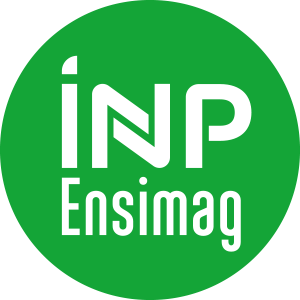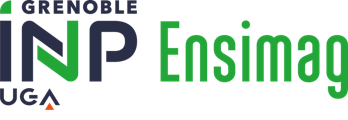From 2026 onwards, engineering students will be able to choose their teaching units freely. To help guide your choices, we offer a selection of possible pathways. These are more than just guides; they are coherent subject-based pathways that allow you to explore Computer engineering Science and Applied Mathematics topics in depth.
Customise your pathway:
- Algorithms and Computer Science Theory
-
The aim of this specialisation is to train engineers with in-depth knowledge and a strong capacity for modelling problems in addition to designing and analysing effective algorithms and solutions in different contexts and environments. The specialisation enables students to work in the fields of computer science research and development and also to pursue a PhD.
- Distributed and Parallel Computing
-
Modern computer systems are made up of multiple computing units that operate concurrently, sometimes sharing memory. In addition, many applications require more computing power than modern isolated processors can provide in order to run in a satisfactory amount of time. Programming these applications to optimise large architectures requires knowledge of parallel algorithms, distributed algorithms, and the associated programming languages and libraries.
- Cybersecurity
-
This specialisation addresses the significant demand for people trained in cybersecurity in all areas of digital technology and its applications. It provides either specialised training (for example, by choosing the M2 Cybersecurity programme) or the basics and best practices for all students developing digital applications that may be subject to or a vector for cyberattacks, skills that are now expected in all fields. This specialisation is aimed at all profiles in the digital sector, as it covers mathematical and theoretical aspects of computer science as well as technical and organisational aspects of digital security.
- DevOps
-
The aim of the DevOps specialisation is to train engineers with dual skills in software development and expertise in systems and networks, enabling them to manage the entire lifecycle of an application, from design to deployment, including operation and continuous optimisation, while integrating security at all levels.
- Data Management
-
This specialisation trains engineers to become experts in the field of data management, including both structured and unstructured databases, from modelling to implementation.
- Visual Computer Science
-
This specialisation focuses on image engineering, synthesis, vision, geometry and home machine interfaces as a set of coherent and complementary skills applicable to a wide range of different professions. From a functional point of view, it progresses through four pillars: Synthesis and animation, geometry, vision, HMI/VR/AR.
- Infra-Scientist
-
Coming soon
- Embedded software engineer
-
Coming soon
- Financial Engineering and Mathematics
-
The aim of this specialisation is to train graduates with triple skills in mathematics, computer science and finance, as well as strong expertise in financial risk management. In order to meet the requirements of the targeted professions, this specialisation aims to teach students how to simultaneously apply the disciplines of computer science, mathematics and finance, for an integrated approach to problem solving. This specialisation offers students training in current issues such as financial regulation, artificial intelligence and ethical and socially responsible finance.
This specialisation is offered as a double degree, in conjunction with the M2 Quantitative Finance programme at Grenoble IAE - INP.
This specialisation is divided into two tracks: I2MF and MéQA offer two different perspectives on financial engineering. The I2MF track enables students to solve financial problems by drawing on a detailed understanding of existing mathematical models to create industrial-scale implementations. The MéQA track enables them to design new financial mathematics models and test them using computer prototypes in order to solve these same financial problems. These tracks offer two different but perfectly complementary perspectives. Thanks to group projects common to both tracks, students following either track benefit fully from the complementarity of the two tracks. - Mathematics for Images
-
Coming soon
- Digital Technology and Society
-
This specialisation lies at the intersection of digital sciences and social sciences and humanities, providing perspective on the place of digital technology in society and its positive and negative socioenvironmental impacts.
- Digital Technology for Biology and Health
-
Coming soon
- Data Science
-
This specialisation aims to train engineers with strong expertise in probability and statistics for data analysis. The field of application is varied and includes (but is not limited to) applications in healthcare, banking-finance-insurance, marketing, logistics and digital technology.



